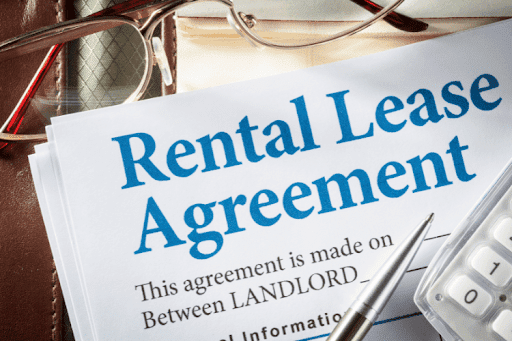
At Professional Cairns Beaches, we understand that navigating the world of rental property management and tenancy law can sometimes feel like quite the maze, but worry not – we’ve got you covered.
In this guide, we’ll break down the ins and outs of periodic tenancy agreements, also commonly referred to as lease agreements. We’ll explore the key aspects, notice periods, and what to expect, all in plain and straightforward language.
Whether you’re a property owner, tenant, or simply curious about Queensland’s tenancy landscape, this guide is designed to offer you peace of mind. Let’s begin!
What Is a Periodic Lease Agreement in Queensland?
In Queensland, a periodic lease agreement refers to a tenancy arrangement that isn’t confined to a fixed term but instead renews weekly, fortnightly, or monthly.
Once a fixed-term tenancy agreement in Queensland reaches its end without renewal or termination, it seamlessly transitions into a periodic tenancy agreement. This transition, after the fixed term expires, is designed to cater to those seeking a more flexible rental option.
What Are the Notice Requirements for Period Lease Agreements in Queensland?
The legislation in Queensland clearly defines different notice periods for various grounds when either party wishes to terminate a periodical lease.
Both landlords and tenants must notify each other in order to terminate a periodic rental agreement, and the minimum notice periods differ depending on the specific grounds for termination.
For tenants looking to conclude the agreement, the notice periods vary according to the grounds they are citing.
Can the Rent Increase During a Periodic Lease in Queensland?
The answer is yes, it can. However, there are rules to follow.
If a landlord is planning a rent increase, s/he must inform the tenant in writing at least two months prior to the increase taking effect. This gives tenants time to prepare and make informed decisions about their rental costs.
What About Bonds in Queensland’s Lease Agreements?
If you’re offering any lease in Queensland, a bond is mandatory. For rentals priced at $700 or less per week, the bond is equivalent to four weeks’ rent.
But, if the weekly rent exceeds $700, the bond amount should be negotiated between the property manager/owner and the tenant.
That’s because Queensland’s legislation doesn’t specify a maximum bond amount for high-end rentals, which leaves room for negotiation and agreement.
What Are the Pros of Periodic Lease Agreements?
Let’s explore the advantages of periodic lease agreements. From flexibility to adaptability, these types of leases have a lot to offer tenants and landlords alike, including:
Increased Flexibility
Periodic lease agreements offer unparalleled flexibility. Tenants have the freedom to decide when they want to conclude their lease with a shorter notice period.
This flexibility is a valuable asset, allowing tenants to adjust to changing circumstances or seek more suitable rental properties when the need arises.
No Fixed End Date
Unlike their fixed-term counterparts, periodic leases operate without a predetermined end date.
This open-ended nature provides tenants and landlords with greater flexibility in structuring their tenancy arrangements.
It’s a blank canvas, allowing both parties to adapt to evolving circumstances.
Ease of Termination
Terminating a periodic lease is often more straightforward, benefiting both tenants and landlords.
Tenants can provide notice when they’re ready to move on, while landlords have the freedom to make changes or conclude the lease, provided they follow the appropriate notice requirements.
It’s a win-win situation for flexibility!
Adaptation to Changing Needs
Periodic lease agreements are tailor-made for those whose long-term housing needs might be uncertain.
They shine when tenants require shorter-term arrangements or when landlords have properties available for shorter rental periods.
This adaptability ensures that housing arrangements remain well-aligned with the ever-changing needs of tenants and landlords alike.
Less Commitment
Compared to fixed-term leases, periodic leases typically come with less commitment.
This reduced level of commitment is beneficial for tenants who prefer not to be locked into a long-term contract.
Likewise, landlords can also appreciate the flexibility that periodic leases offer, making it easier for them to manage their properties and respond to market fluctuations.
What Are the Cons of Periodic Lease Agreements?
Conversely, periodic tenancy agreements also come with a few downsides that both tenants and landlords should be aware of—and those encompass the following:
Tenant’s Short Notice
In periodic lease agreements, tenants often have the flexibility to give a relatively short notice period to vacate the property.
While this flexibility benefits tenants, it can pose a disadvantage for landlords, especially during low-demand seasons.
Landlords may find it challenging to swiftly fill a vacant property, potentially leading to longer periods without rental income.
Rental Value Uncertainty
With periodic leases, there’s inherent uncertainty about rental income. Landlords may encounter fluctuations in their rental income as tenants come and go.
This unpredictability can make it harder for landlords to estimate their monthly earnings, introducing financial uncertainty.
Landlords also have to factor in rental property management fees and make sure that they’re able to make ends meet every month.
Lack of Long-Term Commitment
Periodic leases lack the long-term commitment that fixed-term leases offer. This absence of security can be a drawback for landlords who prefer more stable, extended rental agreements.
It may require landlords to actively seek new tenants more frequently, which can be time-consuming and potentially result in periods of vacancy.
Increased Administrative Work
The turnover of tenants in periodic leases often means that landlords need to invest more time and effort in finding new tenants and managing these turnovers.
This increased administrative workload can lead to additional costs, both in terms of time and potentially money.
Risk of Forgetting Rent Increases
Another challenge with periodic leases is the potential risk of landlords forgetting to increase rent at regular intervals.
Since these agreements lack a specific end date, landlords may inadvertently overlook adjusting the rent in line with market rates.
This can lead to a loss of potential income, especially if they fail to keep the rental amount competitive.
FAQs
What is the minimum lease term in Queensland?
In Queensland, there’s no set minimum lease term. Landlords and tenants can agree on various lease lengths, typically 6 or 12 months. Short-term rentals (less than six months) are also an option, great for business or holiday stays.
What are the different types of leases in Queensland?
In Queensland, there are two main types of leases: fixed-term and periodic.
- Fixed-Term Lease: Has a set duration, often 6 or 12 months.
- Periodic Lease: Has no fixed end date, renews regularly (weekly, fortnightly, or monthly).
What are the rules for breaking a lease in Queensland?
To end a fixed-term lease early, you need your landlord’s consent or valid reasons, and you may have to pay compensation. Notice periods apply, usually two months. Be sure to document everything in writing as well.
Can a landlord break a lease in Queensland?
Landlords can end fixed-term leases with 30 days’ notice on the last day, but they must have valid reasons. For periodic leases, it’s easier. Compensation may apply if tenants end leases early. Remember, all agreements are legally confidential too.
Conclusion: How Professional Cairns Beaches Can Help You
From the freedom that periodic tenancy agreements offer to the potential pitfalls, we’ve covered it all.
When it comes to tenancy, we believe that knowledge is power, and our commitment to providing you with insights into the nuances of property management can make a significant difference.
For further guidance and tips, make sure to explore our range of services. We’re here to help you navigate the real estate journey with confidence and peace of mind!







